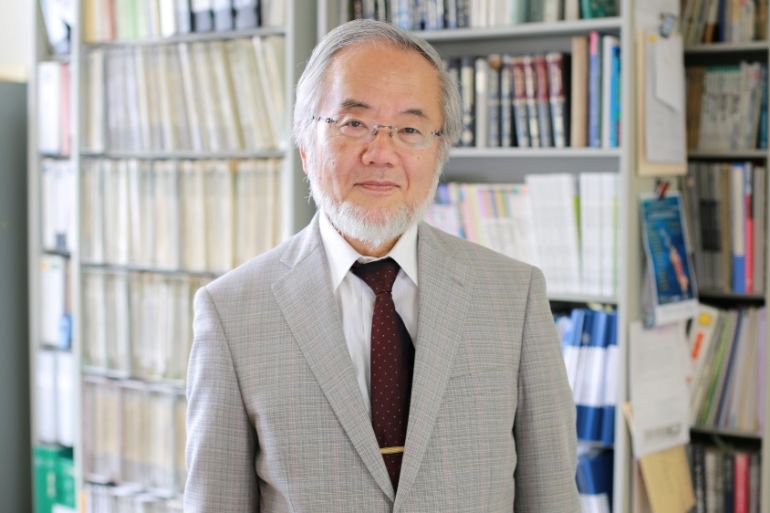Japan’s Yoshinori Ohsumi wins Nobel prize in medicine
Japanese professor worked on how cells break down and recycle content, which could shed light on range of diseases.

A Japanese professor has won the 2016 Nobel prize for medicine or physiology for his discovery of how cells break down and recycle their content, which could lead to a better understanding of a range of diseases, including cancer, Parkinson’s and type 2 diabetes.
“[Yoshinori] Ohsumi’s discoveries led to a new paradigm in our understanding of how the cell recycles its content,” the Nobel Assembly at Sweden’s Karolinska Institutet said in a statement on awarding the prize of $933,000.
Keep reading
list of 4 itemsCould shipping containers be the answer to Ghana’s housing crisis?
Are Chinese electric vehicles taking over the world?
First pig kidney in a human: Is this the future of transplants?
“His discoveries opened the path to understanding … many physiological processes, such as in the adaptation to starvation or response to infection,” the statement added.
Ohsumi’s work on cell breakdown, a field known as autophagy, is important because it can help to explain what goes wrong in an array of diseases.
“Mutations in autophagy (‘self eating’) genes can cause disease, and the autophagic process is involved in several conditions including cancer and neurological disease,” the statement said.
Ohsumi, born in 1945 in Fukuoka, Japan, has been a professor at the Tokyo Institute of Technology since 2009. He received a PhD from the University of Tokyo in 1974.
“I am extremely honoured,” he told Kyodo news agency.
READ MORE: Trio wins Nobel in chemistry for work on DNA repair
Autophagy is essential for the orderly degradation and recycling of damaged cell parts and its failure is believed to be responsible for ageing and cell damage.
Researchers first observed during the 1960s that the cell could destroy its own contents by wrapping them up in membranes and transporting them to a recycling compartment called the lysosome.
“Difficulties in studying the phenomenon meant that little was known until, in a series of brilliant experiments in the early 1990s, Yoshinori Ohsumi used baker’s yeast to identify genes essential for autophagy.”
He also explained the underlying mechanisms for autophagy in yeast and showed that similar sophisticated machinery is used in human cells.
Last year, Irish-born William Campbell of the US, Satoshi Omura of Japan and China’s Tu Youyou won the prestigious award for their discoveries of treatments against parasites.